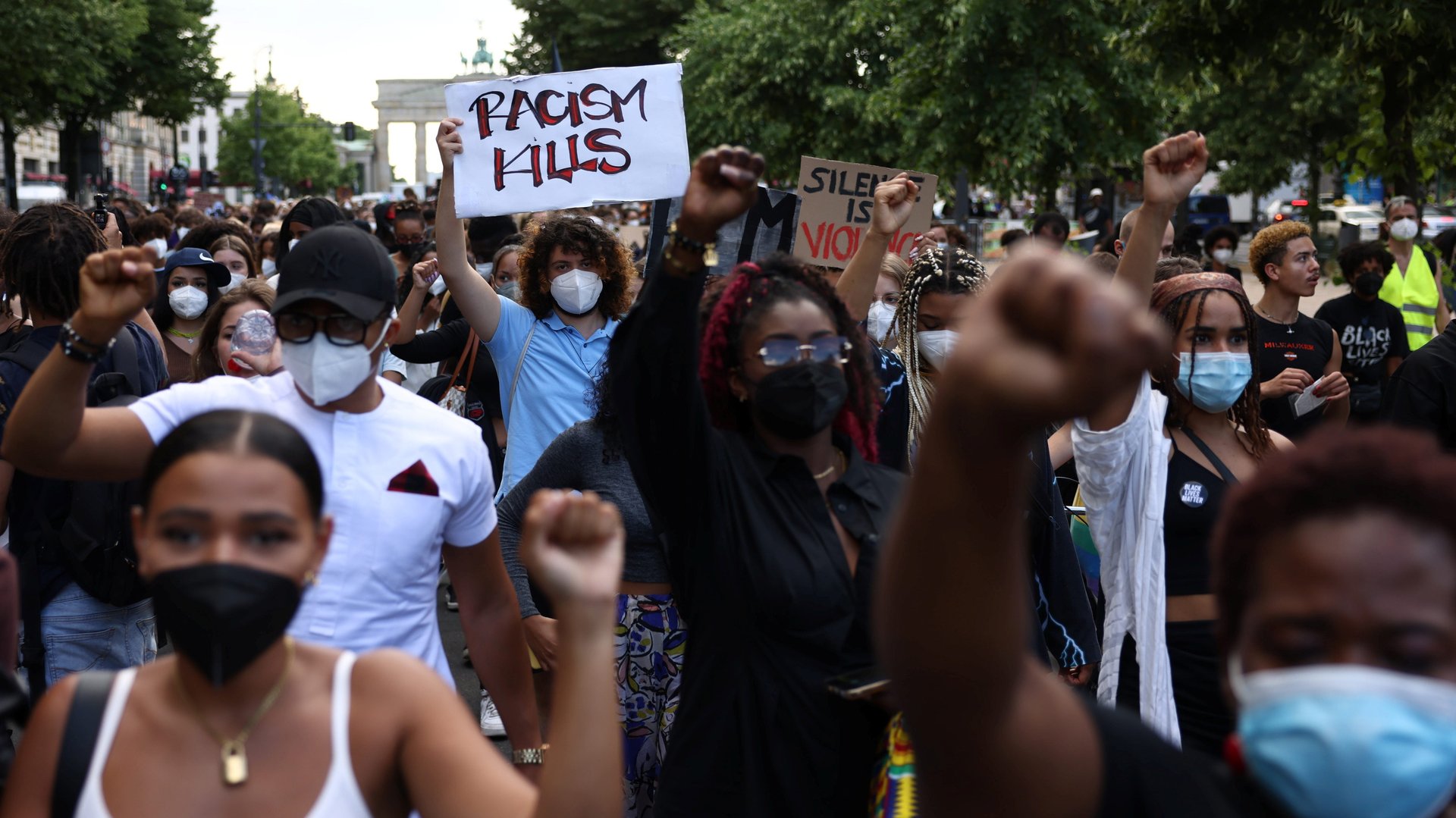Are you even trying to stop racism if you don’t collect data on race?
In the UK, US, and Canada, it is commonplace for public institutions—like the healthcare system, and the national census—to ask for your race or ethnicity. Because of this, they have robust statistics on the identities of their citizens. These nations, however, are the outliers.


In the UK, US, and Canada, it is commonplace for public institutions—like the healthcare system, and the national census—to ask for your race or ethnicity. Because of this, they have robust statistics on the identities of their citizens. These nations, however, are the outliers.
Most of the world’s wealthiest countries don’t collect any data on the racial or ethnic identity of their people. In many cases, it’s illegal. France doesn’t keep official statistics of how many Black residents it has, for example. Neither does Germany.
A new UN report on racial injustice against Black people, says it’s time for these nations, and many others, to start compiling.
“States should collect and make publicly available comprehensive data disaggregated by race or ethnic origin,” states the report from the Office of the United Nations High Commissioner for Human Rights (OHCHR). The study was lead by Michelle Bachelet, OHCHR’s chief and the former president of Chile.
The countries that collect racial and ethnic data and the countries that don’t
Twenty of the 38 OECD countries collect no racial or ethnic identity data. These include some of the world’s wealthiest nations, like Japan, Germany, France, and Italy.
Discussions about race and ethnicity data collection can be difficult
For some nations, particularly those in Europe, conversations around race and ethnicity data collection are fraught.
From Nazis, to fascists, to secret police, Europe’s history is full of people and institutions collecting identity information and using it in oppressive, murderous, and genocidal ways.
“This is the history” explains Ojeaku Nwabuzo, “it then becomes very difficult to reconcile that history with then collecting ethnic data. So that’s one very stark challenge.” She’s a senior research officer at the European Network Against Racism, an advocacy group working towards racial equality in EU member states and contributed to the UN report.
Another challenge is nationalism. The idea of French identity, for example, aims to erase individual differences in favor of a universal way of life. Such a view makes collecting race and ethnicity data hard to reconcile.
Why it’s important to collect racial and ethnic demographic data
Without the data, Nwabuzo says, it’s very difficult to design or chart progress on policies, and to hold institutions accountable. “If you don’t have [the data], you have no idea whether the policies you’re putting together, the recommendations you’re developing, are having the proper impact. You can’t design proper policies for specific groups if you don’t know, firstly, how many of them are in that country. “
The report notes these data are:
- important for analyzing and monitoring the effects of policies on minority groups,
- are necessary for understanding the magnitude of local racism,
- and essential to determining the effectiveness of institutional responses.
Beyond their importance for measuring policy effectiveness, race and ethnicity data provide recognition and acknowledgment for people of minority communities.
Around Europe, civil society organizations led by people of color have started collecting these data themselves, like AfroZensus held in Germany.
“That just goes to show why people of color really believe in this themselves and how they feel that they need to be counted. Because if you’re not counted it’s like you don’t exist. And we don’t have to acknowledge your presence and do anything for you because you don’t really exist. It is about dignity” says Nwabuzo.
Calling for better data collection is just a small piece of the UN report, which was released in June. The 23-page document analyzes and reports on systemic racism against Black people around the globe. It also calls for reversing cultures of denial, ending impunity for police violence, ensuring Black voices are heard and their concerns acted upon, and confronting legacies of racism through accountability and redress. The document was commissioned in 2020 following the murder of George Floyd and subsequent protests worldwide.